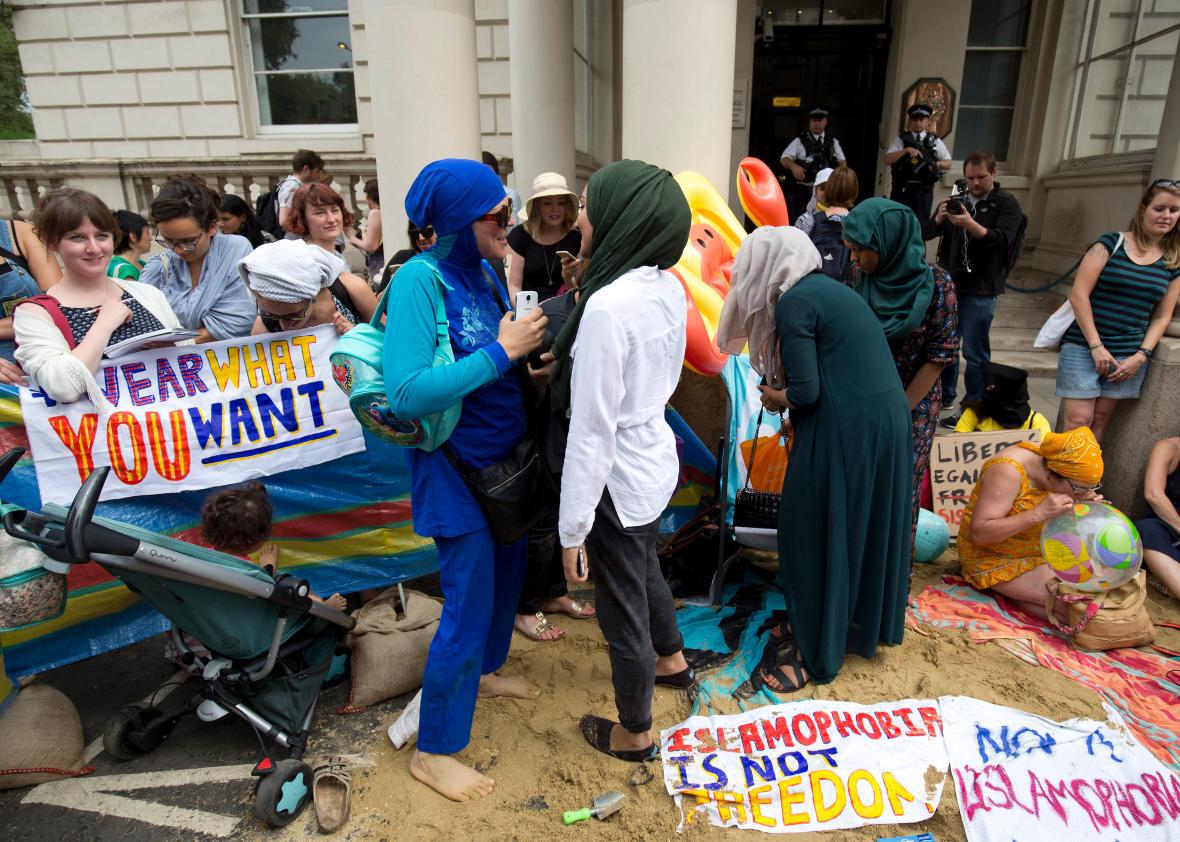In the span of three days last week, New York saw three women in traditional Muslim dress victimized by violent attacks. One, a physical assault on two young women pushing strollers in Brooklyn, was perpetrated by a woman who yelled “You don’t belong here!” and populated her social media feeds with insults to Allah. The third Muslim woman, a 36-year-old Scottish tourist, was assaulted by a man who tried to set her shirt on fire on Fifth Avenue in Manhattan.
These crimes, which occurred just before the 15th anniversary of 9/11, illuminate the misogynist underpinnings of a certain kind of anti-Muslim violence. Because their religious practices often include visible garments or body coverings, observant Muslim women have borne the brunt of rising strains of Islamophobia in both public discussion and public violence.
Police are still investigating whether or not the woman who found her sleeve smoldering on Saturday night as a man with a lighter walked away was the victim of a hate crime or a senseless act of violence, though any interpretation of the attack must take into account her visible markers of Muslim practice. But the Brooklyn perpetrator, 32-year-old Emirjeta Xhelili, was a confirmed Islamophobe—as she allegedly punched and kicked the two women, she tried to rip off their hijabs, yelling, “This is the United States of America, you’re not supposed to be different from us” and “Get the fuck out of America, bitches, you don’t belong here.”
Xhelili has been charged with two counts of felony assault as a hate crime, harassment, and reckless endangerment of a child; the latter charge came down because she shook and tipped over strollers containing an 11-month-old and a 15-month-old. The New York Post and the Daily News report that she’s posted several anti-Muslim screeds on Facebook and Twitter in recent days. “America is the ark of Noah. Trump’s gonna win,” read one. “Your f**king alll llah is so powerful that you need to rent houses near me, have stores near me and be visible to me… nobody sees you, notice you or cares you are alive or your f**king all ah,you are worshipin a horny piece of sh*t,” went another. A third message, posted on Facebook the day before her Brooklyn assault, threatened Muslim women in particular: “From this moment on, every woman that waers [sic] the jihab/hijab will go to hell!! I cant stand you f—ing hypocrites. You have been warned.”
In a statement, the Council on American Islamic Relations of New York said that it has “noted a spike in anti-Muslim discrimination and hate crimes in recent months,” which are attributable “at least in part to Islamophobic rhetoric used by various public figures.”
It’s no coincidence that the Islamophobia spoken and stoked by Donald Trump and his ilk has inspired anti-Muslim violence that’s specifically directed at women. Trump often tries to mask his brand of Islamophobia in the language of feminism and paternalistic sentiments about protecting women: Recall his smear of the Khan family in the days following the Democratic National Convention, when he suggested that Ghazala Khan stood silently by her husband during their tribute to their fallen son because she “wasn’t allowed” to say anything. Proponents of the recent burkini bans in France, which have resulted in anti-Muslim taunts and forced public disrobing of Muslim women, often make similar arguments about liberating women from oppressive religious edicts.
Xhelili’s specific naming of Muslim women in hijabs as her targets fits into the violent intersection of persistent efforts to regulate the bodies of both Muslims and women. It’s a logical outcome of decades of Islamophobes framing their religious bigotry around women who wear their beliefs for the world to see.
